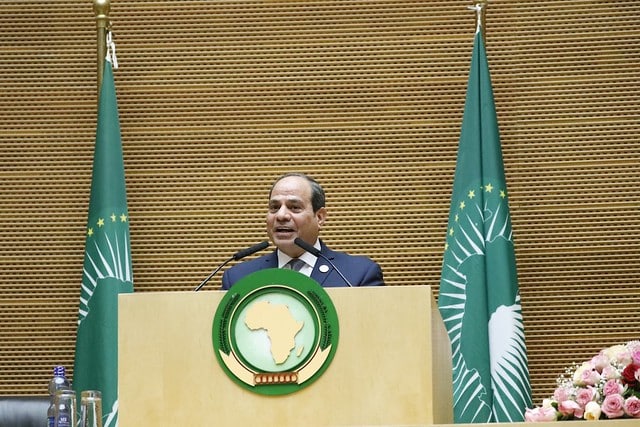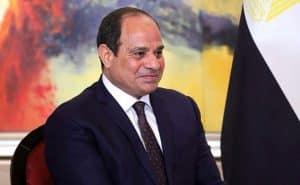A national referendum was held from 20 to 22 April about the proposed and approved constitutional changes that include measures to enhance te role of the military and the extension of President Abdel Fattah al-Sisi’s rule till 2030. Voter turnout of the referendum was 44.33 percent. A great majority of the participants, namely 88.83 percent, chose to approve the amendments. Another 11.17 percent voted no. Critics state that the voting process was undemocratic and unfair, just as the government’s campaign to make the Egyptian public vote ‘yes’ to the referendum, leaving no room for opposition.
————————————————————————————————————
On 16 April Egypt’s Parliament approved amendments to the constitution, a step that could keep President Abdel Fattah al-Sisi in power till 2030. Out of the 596-member Parliament, 531 voted in favour of the amendments. Only 22 voted against, who are now forming the ‘Civil Democratic Movement’, calling on the public to vote against the measures in the upcoming referendum on 20 April.
The amendments
The plan for changing the constitution was firstly introduced during a hearing in Parliament in February, where 485 out of the 596-member assembly gave their initial approval. Afterwards, the bill was sent to the Constitutional and Legislative Affairs Committee to deliver a draft bill for April’s final vote. The final version of the bill now allows Sisi to extend his present term with two more years, after which he can rule for a six-year third term. Speaker Ali Abdel-Al justified this article, which is specific for Sisi, by stating that the country requires stability and “political justice”. Moreover, the amendments will introduce one or more vice presidents and Sisi will be allowed to appoint top judges. A Senate will be introduced and for the Parliaments’ legislative chamber a 25 per cent quota for women will be constituted. The role of the military as “guardian and protector” of the Egyptian state will be enhanced, by ascribing them with wider jurisdiction.
The past weeks, several posters and banners across Cairo encouraged people to vote ‘yes’ for the proposed changes in the referendum. Sisi won his first term as president in 2014 and was re-elected in March 2018 with 97 per cent of the votes. The advertisements are said to be funded by the pro-government parties and MP’s. Al-Sisi’s government is highly criticized by human rights groups, because of media repression and for banishing political opponents. With the new constitution, these groups fear that the country will move more, and again after former President Hosni Mubarak, to a country of absolute rule. Amnesty International said the proposed constitutional amendments would allow the authorities to ease the repression of freedom of expression.
Opposition coalition and the ‘assault on democracy’
The Civil Democratic Movement, which includes liberal and left-leaning parties, called the backed amendments an “assault on democracy”. Khaled Dawood, opposition leader of the liberal Dostour said the “Egyptian regime is not learning from the lessons of mass uprisings in the 2011 Revolution”. The Nour Party, the Conservatives Party and the Egyptian Socialist Democratic Party declared their rejection to the amendments after last week’s final vote, and the determined plan to vote ‘no’ in the 20 April national referendum. Ahmed Khalil, spokesperson of the Nour Party, expressed his doubts over Egypt being called a “civilian state” in the amendments. He said that if it means to be a “non-theocratic or non-military state” he would vote ‘yes’. If it means Egypt being a secular state, the vote will be ‘no’. The Egyptian Social Democratic Party also expressed discontent with the amendments, saying that the constitution should be changed as a whole, not only certain parts that “serve personal interests”. The parties believe that Parliament should not have the authority to amend the constitution. Moreover, they form a threat to the basic principles of the constitution, namely rotation of power. Therefore, a president should not stay in power for more than 10 years. The opposition parties also stated that they were banned from promoting and hanging posters in the street to get attention from the public to vote against the amendments.
What is next?
The three-day national referendum is planned for 20-22 April, just before the month of Ramadan will start. The referendum will also show if voters decide to create an upper parliamentary chamber. When it comes to last year’s election, the election commission stated that the vote was highly transparent and along the lines of international standards of integrity. NGO Human Rights Watch, however, labelled the election as “free and unfair”.
Sources: Ahram, Al Jazeera I, Al Jazeera II, Al Jazeera III, Reuters
Photo: Flickr



